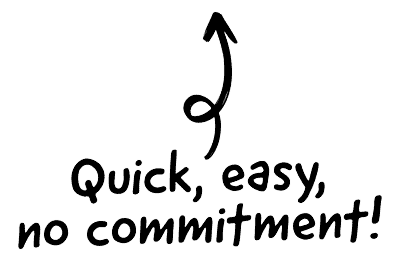The evolution of ‘the cloud’ has already been transformational within our daily lives, whether you were aware or not; Although when most of us think of cloud computing, we automatically think of the business world where it admittedly is more prevalent, but if you use any of the following services, you are already using cloud computing!

- YouTube – 24 hours of content is uploaded to YouTube every minute
- Facebook – Has been the internet’s number 1 page for 2 consecutive years
- Gmail – There are 150,000,000 Gmail addresses in use
- Netflix – Responsible for 34% of all downloads in North America
- Online Banking – in the UK, weekly online banking transactions total on £6.4 Billion on average
Although cloud computing has gained more traction in recent years, the concept is not a modern one. Rooted in the 1960s by JCR Licklider, he wanted to build on a vision that would see everyone across the globe interconnected and accessing data and programs without being restricted by site or location.
 Cutting edge payroll software
Cutting edge payroll software
- Powerful and easy to use
- HMRC & RTI compliant
- Used by payroll pros
 The CRM platform to grow your business
The CRM platform to grow your business
- Great for entrepreneurs
- Powerful data analytics
- Manage sales and data
 Powerful web builder and advanced business tools
Powerful web builder and advanced business tools
- Great for startups
- Powerful web page builder
- E-commerce available
 Supercharged content planning
Supercharged content planning
- Great for marketing
- Better than lists or sheets
- Manage social media
 Create a new website in 10 minutes. Easy.
Create a new website in 10 minutes. Easy.
- Launch your website fast
- Powerful data intuitive
- No coding skills needed
“Very much like modern day cloud computing” comments Richard Kennedy, Head of Engineering at The Cloud Simplified
Computer scientist, John McCarthy has also been commended for his involvement with the development of cloud computing, having proposed the idea of the internet as a public utility, also in the sixties.
On the 25th December 1990, CERN scientists were successful (after 2 years of attempts!) in setting up communication between a web browser and a server via the internet, although this was an astronomical achievement, it seems that the technological world wasn’t quite ready for it. What followed was a number of years tirelessly spent trying to convince others to create more internet browsers. By 1993, it was announced that CERN would make the underlying code available on a royalty free basis forever – at this point the internet exploded.
Within the 1990s, we saw the arrival of such inventions as the Apple Newton MessagePad 100 (think prehistoric iPad), and the world’s first smartphone – the Simon Personal Computer. Windows 95 was launched along with Internet Explorer – within 4 days, over 1 million copies were sold and was responsible for making PCs accessible to millions of home, schools and businesses worldwide.
By 1996 it is estimated over 40 million people were connected to the internet and in 1997 the term ‘cloud computing’ was first coined.
By the time Salesforce.com arrived in 1999, the internet connections were strong and reliable enough for them to pioneer the way of enterprise applications being delivered by a website, known as SaaS – software as a service. This opened up the avenue for software developers to deliver application via the web, these companies were called ASPs – Application Service Providers, and they were responsible for taking existing business applications and running them, charging customers a monthly fee to access the information.
The new millennium saw the birth of broadband with ADSL, and Amazon Web Services, a suite of cloud based storage, computation and intelligence services, it was followed by EC2 (Elastic Compute cloud), the first widely accessible cloud computing service on the commercial scene.
In 2009 the undefeated technology giants, known to the rest of us as ‘Google’ started to offer browser based apps – Google Apps, robust and reliable applications that led the way for the whole industry. The superfast broadband that has boomed over the past few years has made cloud computing even more accessible.
Richard offers some advice to those in the business world, “Cloud computing helps to level the playing field for businesses of all sizes by introducing exceptional levels of performance, reliability and flexibility, and its adoption is growing rapidly. To put it in perspective, 90% of the world’s data was created in the last 2 years, and 66% of it is stored in the cloud, by 2017, 60% of all businesses will have their workloads in the cloud”
Let’s be honest here, in our day to day lives whether its business or personal, we are using the cloud in some form or another. We are using Apple, we are using Microsoft and we are using Google, whether we know it or not. With the Internet of Things now here, we will be seeing smart cities and smart homes emerging, ‘cloud computing’ will begin to transform into so much more than ever imagined. We will be able to control our heating, lighting and consumption from a device, from our washing machine reporting to the manufacturers the state of its components on to our fridge alerting us that our milk will go out of date, there are 3 things to remember about the future of the cloud – Innovative, Interconnected and Intelligence.


